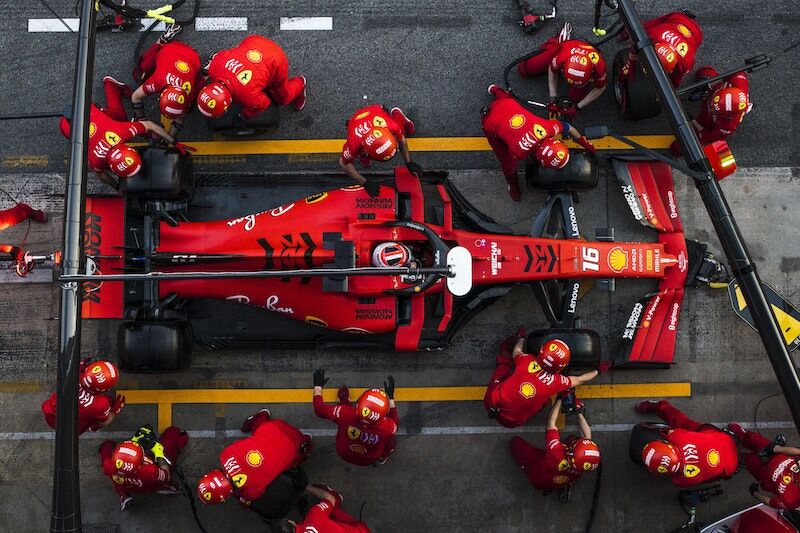By Steve Hansen, PCC. I was reading an interesting article the other day about what it takes to win a Formula One race. It turns out that there are comprehensive studies of what creates success and where that success comes from. This got me thinking about business and how these Formula One studies might suggest how to be a more successful manager. There are many variables, but I want to focus on two: the driver, and the support team.
Nico Rosberg, the German driver who won the Formula One World Championship in 2016, feels that the driver accounts for 20% of a winner’s success while his team is responsible for no less than 80%. Research done in England suggests that when a Formula One team remains intact with the same driver year over year, fully 86% of winning success is attributable to the team. This is an astonishing percentage. For decades it was thought that the driver was the major factor in winning. But through rigorous study it’s now known that the team has the largest impact.
Here’s a quote from the article, “…evidence suggests that the key determinants of a Formula One race are the internal efficiency and expertise of the teams — executing pit stops, radio links, intel on everything from weather to surrounding traffic…” Applying this to your business you might more carefully consider what the key determinants are that your team needs to focus on in order to “win.”
In Formula One racing innovation (i.e., competitive advantage) is part of the key. How do you, as the manager, need to drive innovation to create a stronger competitive advantage looking through the lens of your key determinants? Just like the individual Formula One teams look to have their drivers do laps at 1 or 2 seconds faster (often the winning edge) how might you get more granular in your approach with your team?
Let’s take a look at you (metaphorically the driver) and your team.
- How much do you feel the success of your group is attributable to just you and how much to your team? If your answer is the former, perhaps you need to reevaluate.
- Perhaps it’s time to invest more time and focus in aligning your team.
- Perhaps it’s time to build better skillsets among them, spending more time on development plans that are really meaningful, not just checking the box. Many organizations have corporate initiated development plans for employees, but how much have you as the manager made sure that these plans have teeth and are focused on in a serious and impactful way?
There is yet another aspect to winning. The Formula One teams that often have a winning advantage are those that are owned by companies that build passenger cars as well, like Mercedes and Ferrari. Yet other Formula One teams that don’t build cars have discovered a way to become just as successful. By creating a solid youth training academy they have been able to challenge the top teams and win. So back to you as the manager, putting in place great hiring practices, training, development, and mentoring of young talent to build greater opportunity to create a high functioning team that gets those winning results.
Many managers already have a strong focus on their team. And many companies have strong hiring and training practices. But this article sure does make me curious about what would happen if you and your company focused even more strongly, deliberately, and granularly on development of talent and teamwork. For more about team performance, read these select Arden Coaching blogs.
There is usually only so much influence one can have on the company’s personnel policies, but you do have a lot of control over how to work with your team. Just maybe there is a business lesson here by looking at how Formula One racing teams win.
Oh, and by the way, you may be a superior driver with a superior team but then it rains on race day… Some things will just always be out of our control.
To learn more about planning for change and developing your leadership skills, schedule a consultation with Steve.
Article taken from The Correspondent, “Who’s the Real Winner: Man or Machine?” by Riffy Bol.

